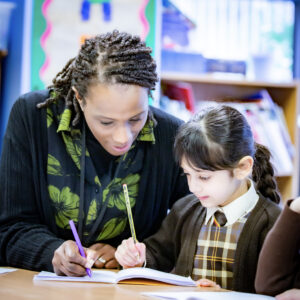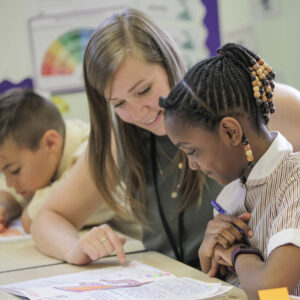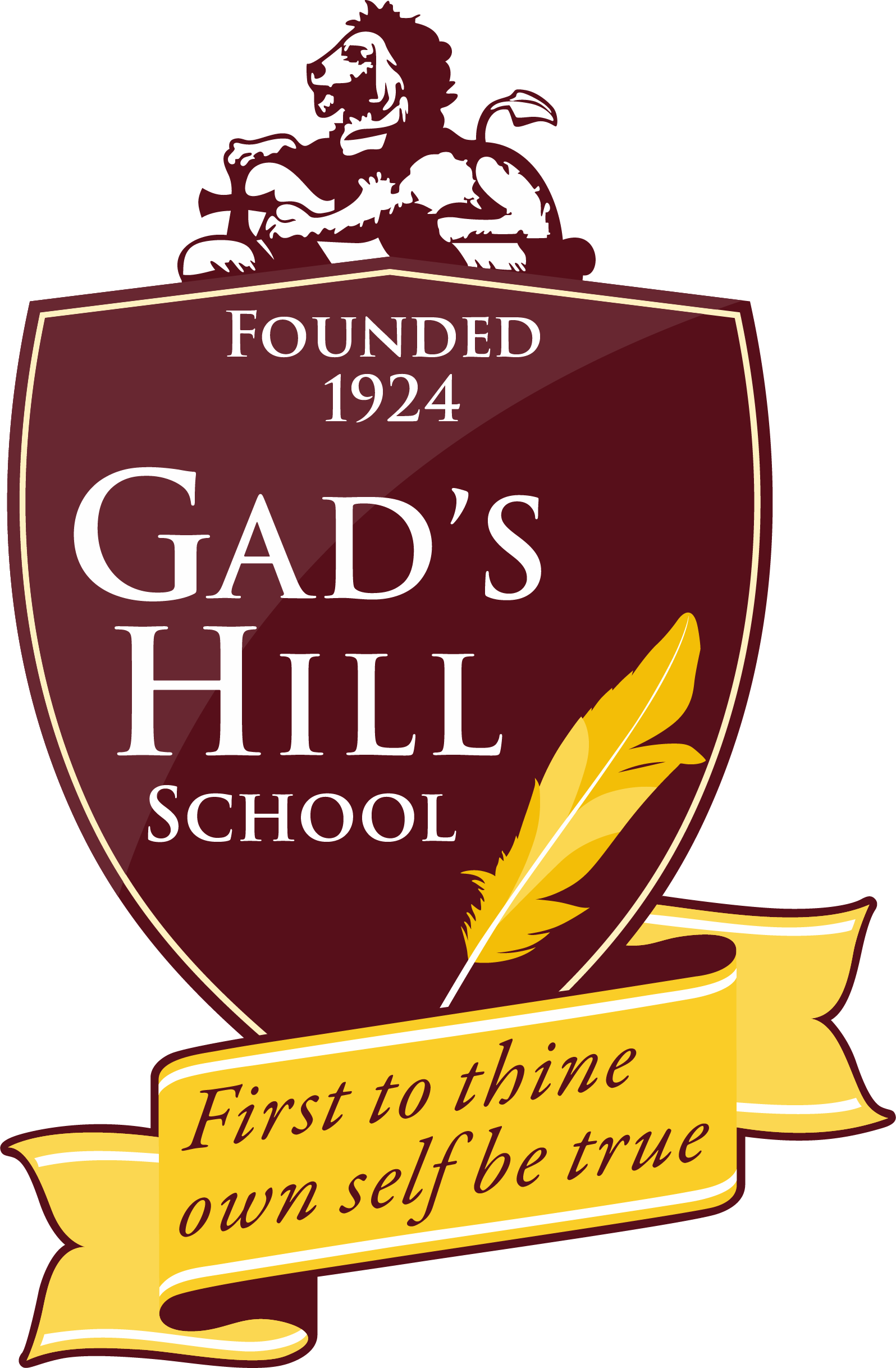
English
English is an essential part of the One Curriculum because, through development of literacy and oracy skills, it facilitates success across all subjects. English teaches our pupils to communicate ideas and to listen to and learn from others. Through study of English, our pupils are exposed to challenging and diverse literary works that broaden an understanding of human nature and our relationship with the world around us.
Kindergarten
Kindergarten

Juniors
Juniors

Upper School
Upper School
Confidence in English is, quite simply, the bedrock on which all other subjects are built. Without it, success in all other aspects of a pupil’s learning is likely to prove elusive; without it, success in later life may yet prove a challenge; it is the key skill!
Staff in the Upper school English Department believe firmly that the following objectives are central to developing a fully literate young person in the first half of the twenty-first century:
That all pupils write effectively, generating engaging ideas and communicating clearly with their readers. They should possess a wide vocabulary and should be able to spell and punctuate accurately and with confidence.
That all pupils develop the ability to read fluently and are comfortable responding to a wide range of texts. Pupils are exposed to quality writing from all periods, whether as poetry, prose or drama. The writers they encounter in the Upper School range from Shakespeare, Donne, Dickens and Orwell to contemporary poets such as Simon Armitage and Raymond Antrobus.
That all pupils can speak and listen effectively and with confidence.
That all pupils are introduced to a range of non-fiction texts and other media, including film and digital texts.
That all pupils recognize that the literacy landscape is changing. Nothing stays the same, least of all what we read and write, and they will need to be able to adapt.
We believe that lessons should be challenging, with plenty of opportunities for critical thinking. To further support the children, we recently launched our ‘Fostering a Love of Reading and Writing’ initiative and, to boost confidence, encourage them find outlets for the wider publication of their work. Classroom lessons are supported by a number of visiting speakers and trips, including the ever-popular “GCSE Poetry Live!”
So, do the pupils, relish their time with us? We’ll let an Upper Shell student answer that one:
“In English lessons you can lose yourself in the world of your imagination, you can recreate history and you can create a distant future.”

Kindergarten

Juniors

Upper School
Confidence in English is, quite simply, the bedrock on which all other subjects are built. Without it, success in all other aspects of a pupil’s learning is likely to prove elusive; without it, success in later life may yet prove a challenge; it is the key skill!
Staff in the Upper school English Department believe firmly that the following objectives are central to developing a fully literate young person in the first half of the twenty-first century:
That all pupils write effectively, generating engaging ideas and communicating clearly with their readers. They should possess a wide vocabulary and should be able to spell and punctuate accurately and with confidence.
That all pupils develop the ability to read fluently and are comfortable responding to a wide range of texts. Pupils are exposed to quality writing from all periods, whether as poetry, prose or drama. The writers they encounter in the Upper School range from Shakespeare, Donne, Dickens and Orwell to contemporary poets such as Simon Armitage and Raymond Antrobus.
That all pupils can speak and listen effectively and with confidence.
That all pupils are introduced to a range of non-fiction texts and other media, including film and digital texts.
That all pupils recognize that the literacy landscape is changing. Nothing stays the same, least of all what we read and write, and they will need to be able to adapt.
We believe that lessons should be challenging, with plenty of opportunities for critical thinking. To further support the children, we recently launched our ‘Fostering a Love of Reading and Writing’ initiative and, to boost confidence, encourage them find outlets for the wider publication of their work. Classroom lessons are supported by a number of visiting speakers and trips, including the ever-popular “GCSE Poetry Live!”
So, do the pupils, relish their time with us? We’ll let an Upper Shell student answer that one:
“In English lessons you can lose yourself in the world of your imagination, you can recreate history and you can create a distant future.”


